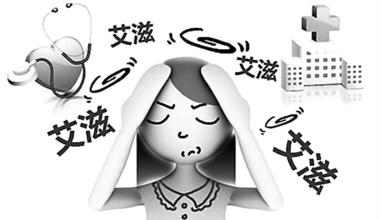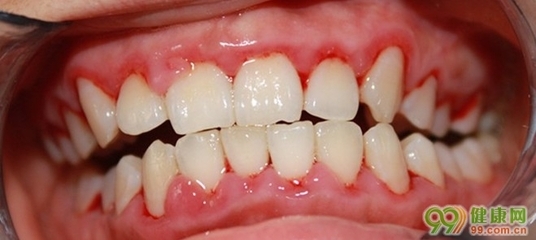艾滋病疑病症
艾滋病疑病症,俗称艾滋病恐惧症,是一种心理精神疾病,属疑病症范畴。国际上称之为(HIV WORRIEDWELL) 艾滋病疑病症属继发性疑病症,是在有或没有明显诱因或躯体疾病的基础上伴发的疑病状态。所谓继发性是指发生高危行为后,并未感染HIV,伴有或不伴有某些相关症状而深信自己患有艾滋病,由于对性病艾滋病的知识缺乏及宣传媒介误导,在一些书上看到艾滋病的某些症状相类似,就怀疑自己患了艾滋病。对检验的阴性结果会产生这样或那样的疑问,所以一般的解释很难从根本上说服他们,甚至会使其产生或多或少的不信任感。这些病人经常奔波于各大医院间,不断的更换所就诊的医生。造成自己身心的疲惫和精神的痛苦。 疑病症患者同时具有疑病人格,属于精神,心理障碍。有些患者有疑病的历史,每次看医生后,在阴性的检查结果和医生的细致解释后,对阴性结果多能够接受,心理负担得到暂时的解脱,但没过多久,又有疑虑产生,又去医院要求检查,要求医生诊断治疗。就这样反反复复,每一次通过看医生,得到短时间的心理解脱。但总是无法摆脱对疾病的恐惧。严重者有自杀倾向。 疑病症是一种以担心或相信患严重躯体疾病的持久性优势观念为主的神经症,病人因为这种症状反复就医,各种医学检查阴性和医生的解释,均不能打消其疑虑。即使病人有时存在某种躯体障碍也不能解释所诉症状的性质、程度、或病人的痛苦与优势观念,常伴有焦虑或抑郁。(常为慢性波动性病程) 常见的心理问题 1.对艾滋病知识的误解,夸大艾滋病的传染性,把多种艾滋病合并症的症状作为艾滋病的特异性症状,一一对号入座。不信任化验结果,对窗口期的误解。应注意倾听患者的诉述;认真讲解艾滋病的相关知识,具体分析患者所遇到的情况,使其对疾病有一个正确认识。 急性HIV感染期:通常发生在接触HIV后2-4周左右。此期HIV大量复制而CD4细胞急剧下降,造成大约50-70%的感染者出现HIV血症和免疫系统急性损伤所产生的临床症状,常见症状、体征有发热、淋巴结肿大、咽喉炎、皮疹等,一般轻微和短暂,在感染出现后2-4周即可检测到抗体。 无症状期:部分病人可出现持续性淋巴结肿大,主要表现为不明原因的淋巴结肿大。此时抗HIV抗体阳性,CD4淋巴细胞总数正常,是传播HIV感染的最大来源。 临床症状期:原因不明的免疫功能低下;持续不规则低热>1个月;持续原因不明的全身淋巴结肿大;慢性腹泻及反复出现其他各种机会性感染等。应强调艾滋病不是一种定位性疾病,其症状体征均由于HIV感染造成的继发性合并症所致,大多数合并症是可在正常人中出现的。决不能因为在书上看到对应症状而确定自己得了艾滋病。 2.认知障碍。要求100%排除患病的可能性, 绝对化的要求。使患者逐渐认识到自己思维的不合理性。 3.恐惧感,羞耻感,负罪感, 艾滋病的恐惧一方面来自艾滋病本身,艾滋病是一种几乎100%致死性疾病,目前尚无根治疗法。另一方面来自社会压力,道德观念,对被歧视的恐惧。应使患者认识艾滋病是一种致死性疾病,但不是烈性传染病。我们生活的世界是一个人与各种致病微生物共生的世界,必须正确认识人与疾病的关系。 另外对患者来说如能除外艾滋病诊断,则不再有任何恐惧的理由。 心理治疗实际上是一个自我学习的过程,和转变的过程。患者存在认知障碍,对艾滋病的知识一知半解,这种解释,保证往往在短时内有效但不持久,很快会反复。医生要耐心,反复,坚定,自信地,持续不断地给予解释和保证,方可收到叠加作用。必要时可配合药物治疗。参考资料:
1.http://www.fad8.com/xcontent_cidian.jsp?userid=276&prentid=4
AIDS hypochondriasis
AIDS hypochondriasis, commonly known as AIDS phobia is a psychological mental illness, is a hypochondriac areas. International call (HIV WORRIEDWELL) AIDS is a secondary hypochondriasis hypochondriasis, or where there is no clear incentives or the basis of somatic diseases associated with a state of hypochondria. The so-called secondary means the occurrence of high-risk behavior has not infected with HIV, with or without certain related convinced that they are suffering from symptoms of AIDS, sexually transmitted diseases due to lack of knowledge of AIDS and to mislead the media, speaking in a number of books AIDS is similar to some of the symptoms, they suspect that their suffering from AIDS. The negative results of the test will have questions about this or that, so it is difficult to explain in general fundamentally to persuade them, and even to produce more or less sense of distrust. These patients often go to major hospitals, the continuous replacement of the medical doctor. Caused by their own physical and mental fatigue and mental suffering. Hypochondriasis patients with suspected patients at the same time frame, mental, psychological barriers. Some patients have a history of hypochondria, each time to see a doctor after the negative test results and doctor‘s detailed explanation of negative results more acceptable to the psychological burden to be a temporary relief, but soon, and have doubts, went to hospitals require inspection, ask doctors to the diagnosis and treatment. In this way repeatedly, each time through to see a doctor, get a short period of psychological relief. But always unable to extricate itself from the fear of disease. In severe cases, a tendency to commit suicide. Hypochondriasis is a worry or believed to suffer from severe physical disease lasting advantage mainly the concept of neurosis, because the symptoms of patients with repeated treatment, all kinds of medical tests and doctors to explain the negative, can not dispel their doubts. Patients sometimes even the existence of a physical barrier can not explain the symptoms v. the nature, extent, or the patient‘s pain and advantages of the concept, often accompanied by anxiety or depression. (Regular course of chronic volatility) Common psychological problems 1. Misunderstanding of AIDS knowledge, exaggerated AIDS infectious complications to a variety of AIDS symptoms as AIDS-specific symptoms, 11 mark-seated. Do not trust the test results on the window period of misunderstanding. Should pay attention to listen to patients referred v.; seriously on AIDS-related knowledge, specific analysis of the situation faced by patients, to make them have a correct understanding of the disease. Acute HIV infection: HIV exposure usually occurs in about 2-4 weeks after. This period a large number of HIV replication and the sharp decline in CD4 cells, resulting in approximately 50-70% of the emergence of HIV-infected persons Hyperlipemia and immune system damage resulting from acute clinical symptoms, common symptoms and signs are fever, lymphadenopathy, pharyngitis, skin rashes and so on, is often mild and transient, in 2-4 weeks after infection can be detected antibodies. Asymptomatic period: Some patients may be persistent lymphadenopathy, mainly unexplained lymphadenopathy. At this time of anti-HIV antibody-positive, CD4 lymphocytes in the total number of normal, the spread of HIV infection is the largest source. Period of clinical symptoms: unexplained immunocompromise; sustained irregular low heat> 1 month; sustained unexplained systemic lymphadenopathy; recurring chronic diarrhea and a variety of other opportunistic infections, such as. It should be emphasized is not a positioning AIDS disease, whose symptoms are caused as a result of HIV infection due to secondary complications, the majority of complications can occur in normal subjects. Must not be seen in the book corresponds to determine their own symptoms had AIDS. 2. Cognitive impairment. Require 100 percent ruled out the possibility of illness, absolutized requirements. So that patients come to realize the irrationality of their own thinking. 3. Fear, shame, guilt, fear of AIDS on the one hand, from AIDS itself, AIDS is an almost 100 percent fatal disease, there is no radical therapy. On the other hand, from social pressure, moral values, the fear of being discriminated against. Patients should be made aware of AIDS is a fatal disease, but not potent infectious diseases. We live in a world that a person with a wide range of pathogenic micro-organisms symbiotic world, we must correctly understand the relationship between man and disease. In addition to the patients if the exception of AIDS diagnosis, while no longer have any fear. Psychological treatment is actually a self-learning process, and change process. Patients with cognitive impairment, the scanty knowledge of AIDS, which explained that the guarantee is often effective in the short-term but not sustained, will soon be repeated. Doctor to patient, repeatedly, firm, confident and ongoing to give an explanation and assurance in order to receive the superposition role. If necessary with medication. References: 1.http: / / www.fad8.com/xcontent_cidian.jsp?userid=276&prentid=4艾滋病疑病症,作为恐艾症的一种;对于其调理方面,注重免疫调控;康生丹颗粒更是一款不错的产品推荐。

Hypochondriasis AIDS as a disease Ai fear; for its conditioning, the focus on immunomodulation; Kang Sheng Dan particles is a good product recommendation.
 爱华网
爱华网


